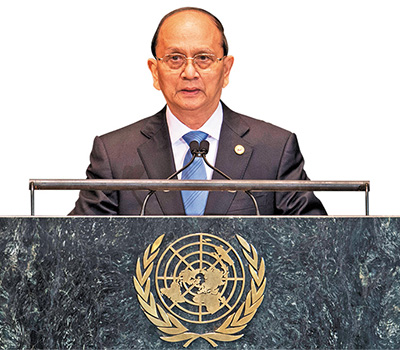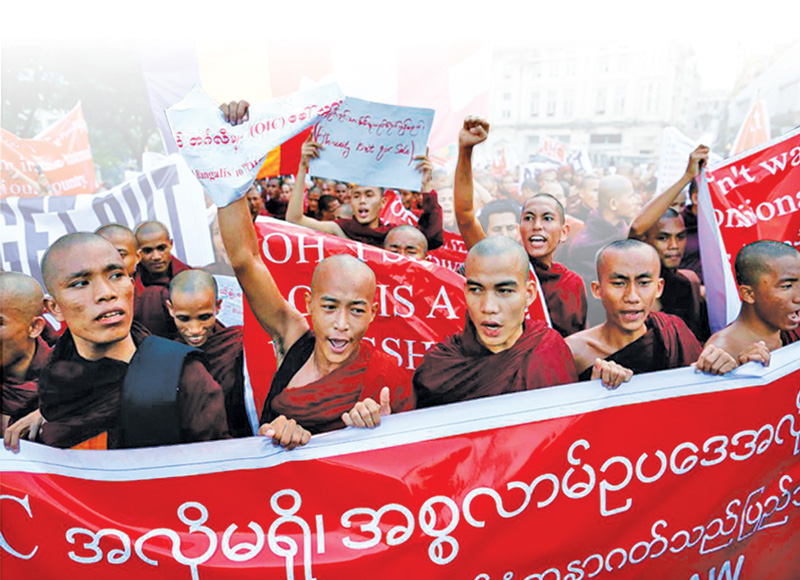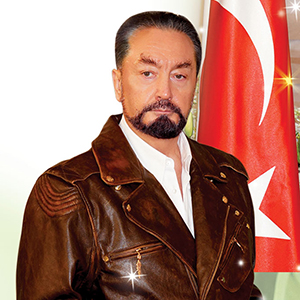Chapter 09 - Are the Rohingyas Doomed to Remain Stateless?
This article was published on Burma Times on February 28, 2015
Burma (Myanmar) is one of those regions of the world that are known for incessant conflicts and humanitarian crimes. Reports from the country demonstrate that the turmoil is continuing and that a major humanitarian drama is still taking place. Terrible violence is being inflicted on the Muslim Rakhine or Rohingya people, one of the ethnic groups in the country. The main source of this violence is ethnic and religious discrimination. The Muslim Rohingya people, described by the U.N. as 'an oppressed religious minority,' constitute 4% of the Burmese population of nearly 56 million. These people, who live in ramshackle camps in Rakhine state in the west of the country, are now the subject of a fresh debate. A government decision to allow the Rohingya people to vote in a constitutional referendum has sparked protest demonstrations by Myanmar's Buddhist majority. The Rohingya are not recognized as Burmese citizens and are forced to live in camps because they are refugees in their own country; that is why the Buddhist citizens of the country do not want them to vote.
 |
| Myanmar President Thein Sein |
The Muslim Rohingya lost all their citizenship rights in a single day under a law passed in 1982. These people are regarded as 'illegal immigrants' from neighboring Bangladesh. There are about a million of them in Myanmar, but they cannot prove their identity as 'Burmese citizens': They exist, but not officially. On the other hand, however, Rohingyas living along the coastal strip on the border are not allowed into Bangladesh by the Bangladesh government because they are not citizens of that country. Rejected by both countries, the Rohingya are struggling to survive as 'people of no land.' Since both countries reject them, the Rohingya have no official identity documents, and thus no citizenship rights; they are, quite simply, stateless.
The most fundamental citizenship rights are just a dream for the Rohingya
Myanmar moved to democracy from a military regime four years ago. The civilian government led by head of state Thein Sein, which has been in power since February 2011, has taken a number of steps toward democratization. Although a large number of political prisoners have been freed, ceasefire agreements have been signed with various ethnic groups, freedom of the press has been broadened and repressive laws have been lightened, Myanmar still draws the attention of the world with the systematic violations of the human rights of the Rohingya and discrimination carried out against religious minorities.
The coming to power of a civilian government changed nothing in the lives of the Rohingya. It has failed to prevent the loss of Muslim lives in religious clashes, hundreds of homes and workplaces being put to the torch and some 250,000 having had to abandon their homes because of the conflict. Moreover, it did not grant the Rohingya the right to citizenship, one of the most basic human rights.
Burmese Muslims, suffering the pain of having no homeland or protection, are today living a life of imprisonment in isolated camps in Rakhine province rather than in their own homes. They have no social rights and have no access to public services such as education and health. They get sick, but they are not admitted to hospital. They find themselves unemployed, but they cannot work in official institutions. Since they have no access to education, illiteracy levels stand at 80%. They cannot even obtain birth certificates for their children. They do not have permission to marry. They cannot own land or property. They are not allowed to build concrete homes, and can only live in homes built of bamboo or wood, buildings which can be easily destroyed during attacks. The rights of citizenship, blessings we never even think of, are just a dream for the Rohingya.
 |
Ethnic cleansing and concentration camps in the state of Arakan
The aim here is, quite bluntly, ethnic cleansing. One of the latest features of this ethnic cleansing campaign is forcing Muslims of Arakan to identify themselves as Bengali in order to become citizens. The Arakanese Muslim identity is thus eradicated. Those who reject that identity are punished by being sent to isolation camps.
The government has now granted temporary citizenship rights to the 1.5 million Arakanese Muslims previously regarded as refugees and allowed them to vote in the upcoming referendum. However, this is also a very cunning stratagem intended as a part of this ethnic cleansing; they are not recognized as citizens, but are only allowed to vote with the white cards given to people regarded as immigrants. In this way, while Arakanese Muslims are pushed to accept being regarded as immigrants, they are trying to give the impression that the country is a democratic one.
Even this temporary right was enough to instigate discriminatory behavior against the Muslim population in the country. Burmese Buddhists have protested against Arakanese Muslims being given the right to vote, albeit on a temporary basis, and have started public demonstrations. Arakanese Muslims are thus subjected both to acts of violence and also to legal, economic and social discrimination.
 |
| ... Whoever has fear of God – He will give him a way out and provide for him from where he does not expect. Whoever puts his trust in God – He will be enough for him... |
The presence of different ethnicities and nations is a cultural wealth
The Burmese administration is adopting a wrong-headed policy by oppressing its people and the Muslims. Different races and nations coming together is a source of cultural wealth, not war and conflict. That diversity is a beauty in God's creation. Islam is a religion of peace and love. Our Burmese brothers' religious faith, devotion to the Qur'an and their loyalty to the teachings of our Prophet (pbuh) are therefore also a blessing and a beauty for Myanmar. Being a Muslim brings about altruism, devotion, moderation, balance, industriousness and love for country and one's fellow citizens. These brothers of ours would therefore never harm the Burmese state. On the contrary, they would support Myanmar with their obedient and respectful behavior. Consequently, there is no need for the Burmese administration to be uneasy about Muslims. If Myanmar wishes to take its place among the modern and democratic countries of the world, instead of persecuting innocent Muslims who do no harm to anyone, they should recognize them as their free and fellow citizens and allow them to live their lives and their religion freely. If Myanmar wishes to take to be one of the modern, 21st Century nations of the worlds, it must adopt a system that bring human rights and democracy to the forefront instead of oppression and violence. This is the key to the peace and stability all the people of Myanmar long for.
>"Oppression against Muslims should end in Myanmar, everyone should write a letter to the officials regarding this issue." | |
| Adnan Oktar: One viewer said as follows: "I urgently and anxiously demand that Adnan Oktar should contact General Than Shwe or Myanmar junta leader in order to find a solution to end the tyranny that our brothers and sisters suffer in Myanmar."
Do they have an embassy here in Turkey? Speaker: They wrote "Help us" on a banner. Adnan Oktar: This unjustness should end. We should talk to US President Obama. Write a letter to Obama. Send these photographs: Let's explain the situation to [US President] Obama, to the European Union, to all of them. Send the photographs as well. They should stop this bleeding, they should end this... Speaker: They have an honorary consulate in Ankara. Adnan Oktar: You ask them by requesting to "end this scandal". Everyone including those who are watching us should write a letter. They should say "stop this tyranny" to the United Nations, to the USA. Blood is shed like water. Let's write to US President Obama, to the European Union. (Adnan Oktar, July 26th 2010, Adıyaman Asu TV and HarunYahya.TV) |
- Introduction - When the Migration Wave Starts to Wash Ashore
- Chapter 01 - Open Letter to the Burmese (Myanmar) Administration
- Chapter 02 - Events in Myanmar Are Crime Against Humanity
- Chapter 03 - A Cry for Help to the U.N. from Rohingya of Myanmar
- Chapter 04 - Behind the Persecution in Myanmar
- Chapter 05 - Myanmar Should Beware of Radicalism
- Chapter 06 - Deafening Silence over Rohingya Issue
- Chapter 07 - Rohingya People Ignored by Myanmar Government
- Chapter 08 - Why Does the World Turn a Blind Eye on Children's Cries Coming from a Far Corner in Southeast Asia?
- Chapter 09 - Are the Rohingyas Doomed to Remain Stateless?
- Chapter 10 - The Rohingya Muslims Are Being Exiled in Their Own Lands
- Chapter 11 - Differences Can Become Richness
- Chapter 12 - What If You Didn't Have Even an Inch of Land to Live on in This World?
- Chapter 13 - Not the Rohingya Crisis, but a Crisis of Humanity
- Chapter 14 - Are the People of Rakhine Condemned to Be Oppressed in the Countries to Which They Flee?
- Chapter 15 - Being a Muslim Woman in Myanmar
- Chapter 16 - How Does It Feel to Be a Rohingya?
- Chapter 17 - Small Steps That Could Make a Big Difference
- Chapter 18 - The Only Solution to the Refugee Crisis That Shook the World
- Chapter 19 - Rohingyas' Uncertain Fate Post-Polls
- Chapter 20 - Time for Global Community to Step up for Myanmar's Muslims
- Chapter 21 - Humans Have Rights on Paper, but Apparently Not in Real Life
- Chapter 22 - The Forgotten Rohingya
- Conclusion - Unity among Muslims Is the Most Vital Issue

